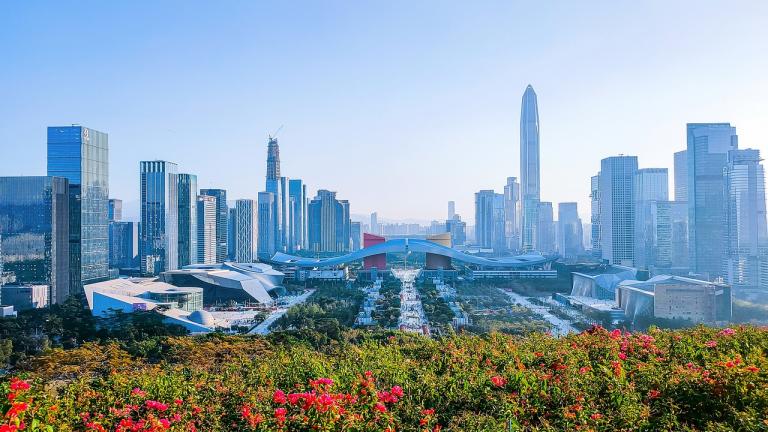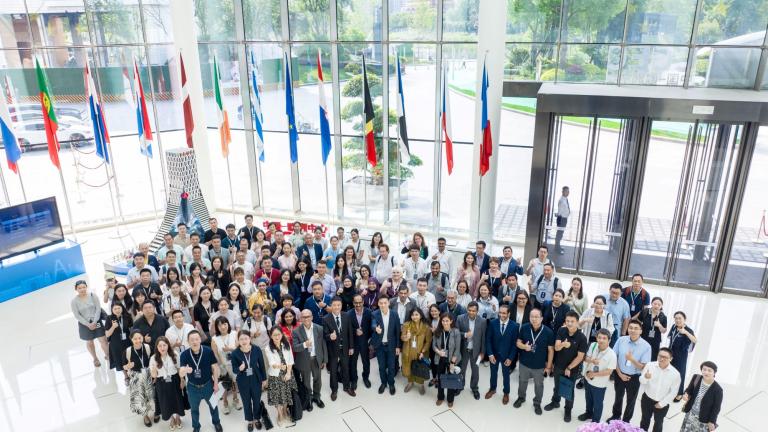Analysis
Revolutionizing Cities for a Greener, Low-Carbon Future
The first UrbanShift National-Local Dialogue in China, led by ICLEI East Asia, focused on integrating biodiversity and low-carbon strategies into urban planning.
By Karishma Asarpota and Saheel Ahmed (ICLEI - Local Governments for Sustainability)
As cities around the world face mounting environmental challenges, multilevel and multi sector action is critical for cities to balance rapid urban growth with the urgent need for sustainability. Led by ICLEI East Asia, the first UrbanShift National-Local Dialogue in China was held virtually on 16 November 2022, due to challenges presented by the COVID-19 pandemic. This event brought together representatives from national and local governments, research institutes, NGOs, and global organizations. Focusing on urban biodiversity and low-carbon development, the dialogue sets the stage for a transformative shift in how China’s cities plan for the future.
The Urgent Need for Biodiversity and Low-Carbon Solutions
China’s cities, like Chengdu, Chongqing, and Ningbo, are rapidly expanding. But with this growth comes challenges: loss of biodiversity, increased carbon emissions, and growing pressures on natural resources. The UrbanShift dialogues spotlighted two crucial areas
- Urban biodiversity, and
- Low-carbon development;
offering practical strategies for cities to address these issues while aligning with national goals.
Participants explored how urban planning can integrate biodiversity by valuing natural assets and addressing climate change, while promoting carbon neutrality through green technologies, energy-efficient infrastructure, and sustainable financing.
Building on National Policies: A Collaborative Approach
A key outcome of the dialogue was strengthening the link between national policies and local actions. In light of China targets to carbon peak by 2030 and carbon neutrality by 2060, critical discussion points included:
- Aligning local strategies with national carbon goals.
- Promoting low-carbon, climate-resilient urban designs and energy-saving technologies.
- Encouraging sustainable financing models to attract private investment, reducing reliance on public funds.
As Mr. Shu Zhu, Regional Director, ICLEI East Asia Secretariat, aptly stated, “The GEF-7 UrbanShift China child project aims to support the integration of biodiversity protection into urban development planning and help cities develop paths to achieve carbon neutrality.” This highlights the dialogue’s focus on merging biodiversity protection with low-carbon urban growth.
Localizing Global Goals and Innovative Financing
While national strategies provide the broad framework, cities need to adapt these goals to their unique challenges. The UrbanShift dialogue helped local governments, such as those in Chongqing and Chengdu, integrate national objectives into their urban planning, addressing key issues like high population density and limited green spaces to create more livable cities. It bridged national carbon-neutrality targets with local realities, emphasizing the use of nature-based solutions to enhance urban biodiversity and promote livable environments. The dialogue also encouraged cities to adopt low-carbon infrastructure and energy-efficient designs to manage overcrowding while reducing emissions.
Discussions also highlighted the need for innovative financing beyond traditional public funds. Local governments were encouraged to explore new financial mechanisms and private sector involvement to support low-carbon projects, such as the Sponge City program for urban flooding and water conservation. Additionally, the dialogue improved governance by fostering knowledge sharing and capacity building, enabling cities to refine their planning approaches and align more effectively with national policies.
What’s Next? A Look Toward the Future
The second dialogue, set to take place in-person on the 16th and 17th of October 2024 in Wuhan, will foster deeper engagement and focus on key short- and medium-term actions, including:
- Strengthening coordination between national and local governments to ensure better alignment of urban planning with national sustainability and carbon-neutrality goals.
- Exploring new financing models to support green and low-carbon initiatives, with a focus on attracting private sector investment and reducing reliance on public funds.
- Building technical expertise within cities to implement sustainable urban strategies, focusing on energy-efficient infrastructure, green technologies, and biodiversity conservation.
The Road Ahead
For China’s cities to truly thrive, they must balance economic growth with sustainability. By continuing to invest in green technologies, biodiversity conservation, and low-carbon solutions, China’s cities have the potential to not only meet national sustainability goals but to serve as models for other cities around the world.
UrbanShift supports cities around the world to adopt integrated approaches to urban development, building an equitable, zero-carbon future where both people and the planet can thrive. Click here to read the summary of China’s first National-Local Dialogue as part of the UrbanShift program. To learn more about the Urban Shift’s work in China click here.
If you have any questions or contributions that could support the planning of the next UrbanShift National-Local Dialogue in China, as part of the UrbanShift program, please reach out to urbanshift@iclei.org.

UrbanShift Peer-to-Peer Exchange: Shenzhen Low Carbon City Forum
Targeting Asian cities, the event will discuss City-Business Cooperation in renewable energy, sustainable infrastructure, and the circular economy.

What's Next for the UrbanShift Network?
As the UrbanShift Global Platform concludes, the next phase of the GEF Sustainable Cities Impact Program will build on the momentum and progress for sustainable and resilient cities.

How Ningbo is Paving the Way for Sustainable Development and Tourism
With the revitalization of Hangzhou Bay Wetland Park, Ningbo is proving the value of biodiversity-focused urban development.

Empowering Cities to Shape Climate Goals: Lessons from the UrbanShift China City Academy
On 1-3 July 2025, the Academy brought together over 120 participants from cities in China, India, Malaysia, Mongolia, and the Philippines, alongside national government representatives.

